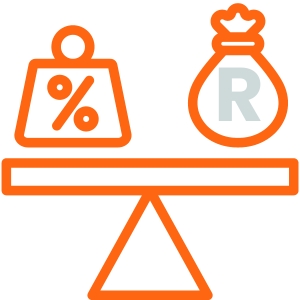
A wedding loan is a financial product designed specifically to help couples cover the expenses of their big day. As weddings can be a significant financial undertaking, many people find it challenging to save up the necessary funds within a short timeframe. That’s where a wedding loan steps in, providing an opportunity to finance your dream wedding without emptying your savings account.
The Concept of a Wedding Loan
A wedding loan is a type of personal loan that is typically offered by banks, credit unions, and online lenders. These loans can be either unsecured or secured, with the former not requiring any collateral, while the latter may need some form of security, like a car or property. Unsecured loans often have higher interest rates due to the increased risk for lenders. The funds can be used for various wedding-related expenses, such as venue rental, catering, photography, and attire.

Reasons to Consider a Wedding Loan
There are several compelling reasons why a wedding loan might be the right choice for you:
- Flexible financing: Wedding loans offer the advantage of spreading out the costs of your wedding over a longer period, allowing you to plan your dream wedding without compromising on your vision. This flexibility can be especially helpful when unexpected expenses arise.
- Preserve your savings: Tapping into your savings or emergency fund for your wedding might leave you financially vulnerable in case of unforeseen circumstances. By taking out a wedding loan, you can keep your savings intact while still having the funds to plan your special day.
- Boost your credit score: When managed responsibly, a wedding loan can have a positive impact on your credit score. By making timely payments and not exceeding your credit limit, you demonstrate to lenders your ability to manage debt, which may result in a higher credit score over time.
A wedding loan can provide a convenient and practical solution for those looking to finance their dream wedding. However, it’s essential to carefully evaluate the pros and cons, as well as explore alternative financing options, to make the most informed decision possible.
Planning your dream wedding can often come with unexpected expenses, but fret not! Our comprehensive guide on budgeting for a wedding offers invaluable tips and strategies to manage your finances efficiently. From allocating funds for different aspects of your celebration to identifying areas where you can save, this guide ensures your big day is memorable without breaking the bank.
Types of Wedding Loans
When it comes to financing your wedding, there are various options available. Understanding the differences between these options can help you make the best decision for your financial situation and wedding plans.
Personal Loans for Weddings
Unsecured Loans: Unsecured loans are a type of personal loan that does not require any collateral. This means that the lender relies solely on your creditworthiness when determining your eligibility and interest rate. Because of the increased risk to the lender, unsecured loans typically come with higher interest rates compared to secured loans. On the other hand, borrowers enjoy the benefit of not risking their assets in case they default on the loan.
Secured Loans: Secured loans, on the other hand, require some form of collateral, such as a car or property, to secure the loan. By providing collateral, the lender has a lower risk, which often results in lower interest rates for the borrower. However, it’s crucial to remember that defaulting on a secured loan could result in the loss of your collateral.
Wedding-Specific Loans
Some lenders offer wedding-specific loans designed explicitly for covering wedding expenses. These specialized products may include unique features and benefits, such as:
- Lower interest rates compared to standard personal loans
- Flexible repayment terms
- A grace period before repayment begins
Credit Card Financing
Another option to consider is credit card financing. While credit cards often have higher interest rates compared to personal loans, they can still be a viable choice for financing your wedding, especially if you have a card with a 0% introductory APR offer or one that comes with rewards and perks. Some advantages of using a credit card for wedding expenses include:
- The ability to earn rewards points or cashback on your purchases
- The potential for an interest-free financing period, if your card offers a 0% APR promotion
- Increased flexibility in making payments over time
However, it’s crucial to be mindful of the risks associated with credit card debt, such as high interest rates and the potential for overspending. Always have a plan to pay off the balance in a timely manner to avoid accumulating excessive interest charges.
If you’re considering a wedding loan, knowing what constitutes a good credit score is essential. This guide provides a comprehensive overview of credit scores in South Africa, helping you understand what lenders look for and how to improve your credit before applying for financing.
How to Apply for a Loan with Arcadia Finance
Applying for a loan at Arcadia Finance is straightforward and accessible. Start your application by visiting our website, where our dedicated and experienced team is available to assist you with any inquiries you might have throughout the process. We will require some basic information from you, including details about your income and expenses, as well as your desired loan amount and preferred repayment term. After submitting your application, our team will promptly review the details and respond with a decision as soon as possible.
Eligibility Criteria for Wedding Loans
Before applying for a wedding loan, it’s essential to understand the eligibility criteria that lenders use to evaluate potential borrowers. Meeting these criteria can increase your chances of approval and secure a more favorable interest rate. Here are some key factors that lenders typically consider:

Credit Score Requirements
Your credit score plays a crucial role in determining your eligibility for a wedding loan. A higher credit score signals to the lender that you are a responsible borrower, making you a lower risk for defaulting on the loan. As a result, borrowers with good to excellent credit scores are more likely to be approved and receive lower interest rates. If your credit score is less than stellar, consider taking steps to improve it before applying for a loan, such as paying down existing debt or correcting errors on your credit report.

Income and Employment Stability
Lenders also consider your income and employment stability when assessing your loan application. A stable job and steady income demonstrate your ability to repay the loan, increasing your chances of approval. Be prepared to provide proof of income, such as pay stubs or tax returns, to verify your employment and earnings.

Debt-to-Income Ratio
Your debt-to-income (DTI) ratio is another critical factor that lenders evaluate. This ratio compares your monthly debt payments to your gross monthly income, providing a snapshot of your overall financial health. A lower DTI ratio indicates that you have a manageable debt load relative to your income, making you a more attractive candidate for a loan. Most lenders prefer a DTI ratio below 43%, but the specific requirements may vary depending on the lender.
Evaluating Wedding Loan Lenders
Choosing the right lender for your wedding loan is a crucial decision that can significantly impact your financial well-being. To make an informed choice, consider the following factors when comparing lenders:
| Factor | Description | Details | Considerations |
|---|---|---|---|
| Interest Rates | Critical in determining the cost of borrowing. | Compare fixed and variable rate options. Fixed rates offer stability while variable rates can fluctuate with market conditions. | Look at the APR to assess the true cost of the loan. A lower APR suggests a more affordable loan. |
| Loan Terms and Repayment Options | Impact the overall cost and monthly budget. | Consider the length of the loan term and the repayment schedule options. | Check for flexibility such as deferment or forbearance in case of financial hardship. |
| Loan Fees and Additional Costs | Include various fees that can affect the total loan cost. | Common fees include origination fees, prepayment penalties, and late payment fees. | Factor these into your total cost evaluation to avoid surprises. |
| Customer Service and Lender Reputation | Important for a smooth borrowing experience. | Research the lender’s track record and customer service capabilities. | Consult online reviews and seek opinions from past customers to gauge reliability and service quality. |
By carefully evaluating these factors, you can confidently select a wedding loan lender that offers the best terms and conditions to suit your unique needs and financial situation.
Pros and Cons of Wedding Loans
Before deciding whether a wedding loan is the right option for you, it’s crucial to weigh the advantages and disadvantages associated with this type of financing.
Advantages
- Flexibility in planning: With a lump sum of cash available upfront, you can better manage your budget and make arrangements without worrying about immediate out-of-pocket costs.
- Preserve savings: A wedding loan allows you to keep your savings intact, protecting your emergency fund and other long-term financial goals. By financing your wedding with a loan, you can maintain a financial safety net while still enjoying the wedding of your dreams.
- Improve credit score: When managed responsibly, a wedding loan can have a positive impact on your credit score. By making timely payments and not exceeding your credit limit, you demonstrate your ability to manage debt, which may improve your credit score over time.
Disadvantages
- Debt burden: Taking out a wedding loan means starting your married life with debt, which can be a burden on your new family. It’s essential to consider the long-term implications of adding a loan payment to your monthly expenses and how it may impact your financial goals.
- High interest rates: Depending on your credit score and the lender you choose, wedding loans can come with relatively high interest rates. These rates can result in significant costs over the life of the loan, making your wedding more expensive than if you had paid for it with savings or other financing options.
- Financial risk: Borrowing money always carries a degree of financial risk. If your financial situation changes or you struggle to make payments, you could face late fees, damage to your credit score, or even the loss of collateral (in the case of a secured loan).
The decision to take out a wedding loan should be based on a careful evaluation of your financial situation, the loan’s terms and conditions, and your long-term financial goals. Be sure to consider alternative financing options and make a well-informed choice that suits your unique circumstances.
Alternative Financing Options
While wedding loans can provide a convenient way to fund your dream wedding, it’s essential to explore alternative financing options before committing to a loan. Here are some other possibilities to consider:
Family Contributions
One of the most traditional ways to finance a wedding is through family contributions. Parents or other close relatives may be willing to help cover some or all of the wedding expenses. This approach can significantly reduce the financial burden on the couple and eliminate the need for a loan. However, it’s crucial to have open and honest discussions with your family about their expectations and your budget to ensure a smooth planning process.
Savings and Investments
Using your own savings and investments to finance your wedding can be an attractive option, as it allows you to avoid taking on debt and paying interest. If you have time before your wedding, consider setting up a dedicated savings account or investment plan to help you reach your financial goals. Keep in mind that using your savings may impact your financial safety net and other long-term goals, so it’s essential to weigh the pros and cons before dipping into your nest egg.
Crowdfunding
Another innovative way to fund your wedding is through crowdfunding. Platforms like Honeyfund and The Knot Cash Funds allow you to create personalized wedding registries that enable guests to contribute towards specific wedding expenses or experiences. This approach can help offset the costs of your wedding while allowing friends and family to feel more involved in the celebration. Be sure to research and choose a reputable crowdfunding platform that aligns with your needs and preferences.
If the rising costs of wedding planning are overwhelming, consider exploring our cost-effective wedding planning tips. These strategies will help you celebrate your special day without compromising on style or quality.
About Arcadia Finance
Secure your loan effortlessly with Arcadia Finance. Enjoy zero application fees and select from 19 reputable lenders, all compliant with the standards of South Africa’s National Credit Regulator.
Planning a Budget-Friendly Wedding
Creating a memorable wedding doesn’t have to break the bank. With some careful planning and creativity, you can have the wedding of your dreams without taking on excessive debt. Here are some tips for planning a budget-friendly wedding:
| Aspect of Planning | Advice | Details |
|---|---|---|
| Prioritising Expenses | Allocate Budget | Determine which aspects of your wedding are most crucial to you and your partner, and allocate more of your budget to these areas while trimming costs in others. |
| Value Quality Over Cost | If certain elements like photography are important, prioritise spending on a skilled photographer over less critical areas like venue or catering. | |
| DIY Projects and Cost-Cutting Tips | Create Your Own | Consider making your own wedding invitations, decorations, or floral arrangements to cut costs. |
| Choose Off-Peak Dates | Opt for a more affordable wedding date, such as a weekday or during the winter months. | |
| Venue Selection | Consider hosting your wedding at a public park, a family member’s backyard, or other budget-friendly locations. | |
| Catering Choices | Select a buffet or family-style meal over a plated dinner to reduce catering expenses. | |
| Enlist Talented Friends | Have friends or family assist with photography, videography, or entertainment instead of hiring professionals. | |
| Bargaining with Vendors | Research Market Rates | Understand the going rates for services in your area to negotiate better deals with vendors. |
| Discuss Budget Constraints | Communicate your budget limits with vendors and ask if they can accommodate your financial situation. | |
| Seek Discounts and Deals | Ask vendors about discounts, promotions, or special packages they may offer. | |
| Promotion Exchange | Offer to promote a vendor’s business on social media or through personal referrals in return for a discount. |
With a combination of prioritization, creative DIY projects, and strategic bargaining, you can plan a beautiful, budget-friendly wedding that won’t leave you drowning in debt.

Financial Tips for Newlyweds
Marriage is not only a union of love but also a merging of financial lives. To ensure a strong financial foundation for your future together, consider these financial tips for newlyweds:
Merging Finances
Merging finances can be a daunting task, but it’s essential for building a united financial front. Start by having open and honest conversations about your individual financial situations, including debts, assets, and credit scores. Consider these options for combining your finances:
- Open a joint bank account for shared expenses, while maintaining separate accounts for personal spending.
- Consolidate debt, if it makes sense for your situation, to simplify repayment and potentially reduce interest costs.
- Update beneficiaries on life insurance policies, retirement accounts, and other financial products.
Creating a Budget
Creating a budget is a critical step in managing your finances as a couple. Work together to develop a budget that covers your monthly expenses, savings goals, and discretionary spending. Keep these tips in mind:
- Track your income and expenses to identify spending patterns and areas for improvement.
- Set realistic spending limits for various categories, such as groceries, entertainment, and clothing.
- Regularly review and adjust your budget to reflect changes in your financial situation or priorities.
Establishing Financial Goals
Setting and working towards financial goals can help you achieve your dreams and maintain financial stability. Work together to define short-term and long-term goals, such as:
- Building an emergency fund to cover at least three to six months’ worth of living expenses.
- Saving for major purchases, such as a home, car, or vacation.
- Planning for retirement by contributing to retirement accounts and investing in your future.
By actively merging finances, creating a budget, and establishing financial goals, you can build a strong foundation for your married life and ensure a secure financial future together.
Conclusion
Wedding loan process involves understanding the different types of wedding loans, meeting eligibility criteria, and evaluating potential lenders based on factors like interest rates, loan terms, and additional costs. Before making a decision, it’s crucial to weigh the pros and cons associated with wedding loans, such as the flexibility in planning, preserving savings, and improving credit score versus the debt burden, high interest rates, and financial risks.
Frequently Asked Questions
The amount you can borrow with a wedding loan largely depends on your credit score, income, and the lender’s policies. Generally, personal loans for weddings can range from a few thousand rands up to R100,000 or more. It’s essential to borrow only what you need and can comfortably repay to avoid excessive debt.
Yes, it’s possible to apply for a wedding loan with bad credit. However, you may face higher interest rates and stricter lending requirements. Some lenders specialize in offering loans to borrowers with less-than-perfect credit, but it’s crucial to carefully review the terms and conditions to ensure they’re favorable.
The repayment period for a wedding loan varies based on the loan type and lender, typically ranging from 12 months to 7 years or more. When selecting a loan term, consider the impact on your monthly payments and the total cost of the loan, including interest. A longer repayment term may result in lower monthly payments, but could lead to higher overall interest costs.
Many lenders allow borrowers to prepay their wedding loans without penalty. However, some lenders may charge prepayment fees or penalties for paying off the loan ahead of schedule. It’s important to review your loan agreement and discuss prepayment options with your lender before signing any documents.
If you’re unable to repay your wedding loan, it’s essential to communicate with your lender as soon as possible. They may be willing to work with you on a modified repayment plan or offer temporary forbearance. Keep in mind that failure to repay a loan can result in late fees, damage to your credit score, and potential legal action from the lender.



